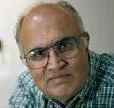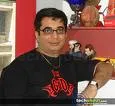Kanwal Rekhi, MD, Inventus Capital, Aravind Singhal, Chairman, Technopak, and Vishal Gondal, CEO, Indiagames, reflected upon the journey of an entrepreneur at the IIT Mumbai Entrepreneurship Summit 2009. The discussion was moderated by Vinnie Vyas, CEO, Crossover Advisors.
Vinnie Vyas: For me the journey of an entrepreneur always starts with going against the convention and accelerates with learning on a continuous basis. You learn how to plan, listen, be flexible and adapt, leverage the resources etc.
But what could be the motivation that inspires a person to go against the convention?
Aravind: Well, in my case, the boss sacked me (laughs). Yes, that's true! I didn't want to work with anybody and always wanted to do something on my own. But I had no capital. So I started with Consulting, which doesn't require any initial investment.
Kanwal: A compelling idea, which addresses an existing need gap in the market motivates me. There is lot of changes happening in the market. One should get plugged in with the market and look for such opportunities. Also I strongly recommend that technical guys should also step into sales and marketing as it gives an overall perspective once you decide to become an entrepreneur.
Vinnie: So is it about fulfilling an existing need or creating a need?
Vishal: I don't know about that? All I can tell you is that I was inspired by Batman game… (laughs). I was always the highest scorer. I decided to launch my own game when Kargil war was raging. The game 'I love India' was about shooting Pakistanis but the game had a bug- somehow India always won. It became very popular and soon Pricewaterhouse Coopers (PwC) approached me for arranging funds. That's was the time when I first heard about Venture capital. What is all about? PwC guys told me it's a loan. I said I don't need a loan. They explained that it's a loan which you don't have to return… (more laughter). That's how it all started. I still don't know for what I am getting paid for. I think the whole idea of being an entrepreneur is to have fun.

Vinnie: What about the vision of an entrepreneur? How important role it plays in the journey?

Kanwal: I would say it's the passion, which plays very important role in the beginning. Just like a leopard, which waits and watches carefully before selecting a prey, one should be clued to the changing market scenario and look for new ideas.
Aravind: To have a vision is good. But somehow people start mixing it with valuations. An entrepreneur should look at the value creation rather than valuation of the company. It's great to dream big and have a long-term vision but live by the day, earn by the day, and adapt by the day.
Vinnie: Is it important to have milestones while undertaking an entrepreneurial journey?
Vishal: For me, the most important milestone has been to change the mindset of people around me. Suddenly, I have lot of friends telling me they always knew that I will succeed. I think the entrepreneurial journey has no start or end. Challenges and setbacks constantly redefine your goals. In 2000, we were on the verge of bankruptcy. Still, I took a bet on new technology and put Rs 2 lakh in mobile gaming. That worked! I think stability is dangerous. An entre
preneur should always bet on something new. To give you one example, when washing machine was launched in India, people in north used it to make lassi … (laughter). Can you beat it?
Vinnie: What are the factors that define success for an entrepreneur?
Aravind: I think it depends on the stage of journey you are in. To start a company, a person should be jack of all trades and a passion to excel, which can overcome the shortage of resources and manpower.
Kanwal: I believe an entrepreneur should never rationalise his mistakes. It retards your growth. One should always owe up to mistakes and internalise it.
Vishal: Remember, an entrepreneur is brand ambassador of the company. What matters is, after 10 years, how many of your own people-old customers, employees, vendors, and investors-still remember you. To me, that's the most important yardstick of success.
Vinnie: When is the right time for scaling up the business?
Aravind: It's important to have financial security, a responsible and accountable team before you think of scaling up. Again, unlike popular perception, scaling up the business is not about increasing the turn over but adding new dimensions to your business.
Vinnie: How do you motivate your team?
Aravind: It's important to have self-belief and demonstrate early success to your employees. People want to see tangible outputs.
Vishal: It's important to make them believe in your idea. There has to be a strong cause, which unites everybody around and all of them work towards that cause. For example, gaming as a form of entertainment is still in a nascent stage in India compared to rest of the world where it's a multi-billion dollar industry. Our company cause is to be the number one firm in India in the field of gaming entertainment. A strong cause turns people into suicide bombers, we are at least talking about running a business here… (laughter).
Vinnie: What are the attributes you look for while financing a business?
Kanwal: I must have invested in more than 53 companies but I never finance an idea or business plan or market segment. All these things change with time. I always bet on the person, the entrepreneur. In fact, first time failed entrepreneurs are good bet as they know what went wrong and come out more wiser and practical after the debacle. Another important aspect is that an entrepreneur needs to be pragmatic about the time frame of pumping money into their business. I have had four failures in my life. You need to be brutally honest with yourself. Trying more in a particular business doesn't necessarily mean that you are competent to make it a successful venture.
Vinnie: What happens when a large company enters into your sector with economic muscle to make you redundant?
Aravind: In India, big MNCs tend to ignore the local players. Also there is enough opportunity for everybody to succeed. Still, if you have to compete, then do it selectively. Don't compete with them in all the verticals. Select you core competency vertical and give your best shot. In Consulting, we are already challenging the might of big global organisations in India and our forte is textile and clothing vertical.
Vishal: I think being small has its own advantages. You rely on speed to come out with new ideas and implementations.
Kanwal: I think the best way is to change the rules of the game and upset their apple-cart. World is full of examples where small companies have come out with disruptive technologies and made big companies redundant.
Vinnie: Tips you would like to give it to budding entrepreneurs
Kanwal: Entrepreneurship is not an event, it's a process. Prepare yourself for a long haul, surprises, challenges and setbacks. But don't be afraid of failures. Things will eventually turn in your favour.
Aravind: Create values in the company and don't worry about value creation.
Vishal: (Cheekily) Don't forget how to do 'jugaad'. It's very important in India (more laughter).







